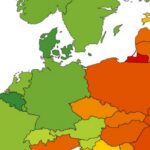Boston just made history—again. In a bold move to protect its LGBTIQIA+ residents, the City Council has officially declared Boston a sanctuary city for transgender and queer individuals. The resolution, passed with a 12-1 vote, ensures that the city will not comply with federal or state policies that undermine LGBTIQIA+ rights, particularly those targeting gender-affirming care, reproductive health, and anti-discrimination protections.

This isn’t just a symbolic gesture. Boston refuses to cooperate with policies that put trans and queer lives at risk. Taxpayer-funded agencies will not assist in enforcing laws that strip away crucial protections. The city remains steadfast in securing access to healthcare, housing, education, and employment without fear of discrimination.
Boston’s legacy as a queer rights stronghold is long-standing. It was here that the Transgender Day of Remembrance was born, honoring the lives of Black trans women like Rita Hester, Monique Thomas, and Chanelle Pickett, whose tragic deaths sparked a global movement against transphobic violence.
With attacks on LGBTIQIA+ rights escalating across the U.S., this declaration is a powerful act of resistance. Boston is sending a clear message: “Queer and trans people belong. They are protected. They are home”.
You may also like
-

Ten Years of Balkan LGBTQIA: A Decade of Fighting Borders, Discrimination and Silence
Created in Brussels by volunteers from across the Balkans, Balkan LGBTQIA has spent ten years
-

Queens of the South: When Nice Turns Carnival into Queer Celebration
On 27 February 2026, Place Masséna in Nice will shimmer a little brighter. Lou Queernaval,
-

Cœur de pirate at AB: the runaway pop of a queer icon lands in Brussels
A major figure in Francophone pop and an outspoken voice in the queer community, Cœur de pirate
-

Safer on Paper, Not in Reality”: ILGA Warns of Rising Anti-LGBTQIA+ Violence in Belgium
Belgium still ranks among Europe’s most protective countries for LGBTQIA+ people on paper – yet
-

“March Is for the Queers”: Why You Should Put Queer March Ghent 2026 on Your Radar
Every March, Queer March turns Ghent into a month-long celebration of queer life, resistance, and

